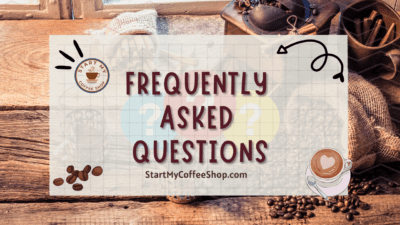In the bustling world of entrepreneurship, starting a coffee business holds tremendous potential. However, like any venture, it requires careful planning and a solid business plan to navigate the competitive market.
A coffee business plan includes analyzing the market, defining your unique value proposition, and developing a robust marketing and operational strategy. Pay close attention to your financial projections to ensure sustainability.
This article explores the essential elements of a comprehensive coffee business plan, equipping aspiring coffee entrepreneurs with the tools needed to brew popularity and stability.
Executive Summary
The executive summary serves as a condensed version of your coffee business plan, encapsulating its core elements. This section provides a snapshot of your vision, mission, target market, and financial projections. It should succinctly communicate the unique value proposition that differentiates your coffee business from competitors.

In the executive summary, emphasize the key milestones that you plan to achieve. Whether it’s opening a flagship store, expanding into new markets, or introducing innovative brewing methods, highlight these significant milestones to demonstrate your business’s growth potential.
Additionally, offer a glimpse into the marketing and operational strategies that you intend to employ. Outline your marketing approach, such as leveraging social media platforms, partnering with local influencers, or organizing community events. Discuss your operational strategies, including sourcing high-quality beans, implementing efficient workflows, and prioritizing exceptional customer service.
Remember to keep the executive summary concise yet compelling, capturing the attention of potential investors, partners, or stakeholders. It should entice readers to delve deeper into the full coffee business plan, as it sets the stage for the comprehensive roadmap that follows.
Read more about: Business Plan for Selling Coffee: Wake Up and Smell Business
Company Description
In this crucial section, you have the opportunity to delve into the intricate details of your coffee business. Start by elucidating your chosen business structure, whether it be a cozy café, a trendy specialty coffee shop, or an innovative online platform. Clearly articulate your decision and explain how it aligns with your overall business strategy.
Next, provide insight into your company’s history, highlighting any significant milestones or accomplishments that have brought you to this point. Articulate your mission statement, capturing the essence of your purpose and the value you aim to deliver to customers. Moreover, express your core values, emphasizing the principles that guide your business practices, such as sustainability, ethical sourcing, or community engagement.
Demonstrate your profound understanding of the coffee industry by incorporating industry insights and trends. Discuss the evolving preferences of coffee enthusiasts, the rising demand for specialty blends, or the popularity of unique brewing methods. By showcasing your knowledge, you instill confidence in your ability to navigate and capitalize on the dynamic coffee landscape.
Market Analysis
To develop an effective coffee business, it is essential to conduct a comprehensive market analysis that uncovers valuable insights about your target market and competitors. Begin by defining your customer demographics, including age groups, income levels, and preferences. Understand their coffee consumption habits, taste preferences, and willingness to explore new blends or brewing methods.
Analyze the local coffee market to gauge its size, growth potential, and trends. Assess the demand for specialty coffees, organic blends, or unique brewing methods within your target market. Identify gaps or untapped opportunities that you can leverage to cater to specific customer needs.
Thoroughly research your competitors to gain a deeper understanding of their strengths, weaknesses, and market positioning. Identify direct competitors, such as nearby coffee shops or online retailers, as well as indirect competitors like tea houses or juice bars that may impact customer choices. Evaluate their offerings, pricing strategies, branding, and customer experience to discern areas where you can differentiate your business.
Determine your competitive advantage by identifying what sets your coffee business apart. It could be a unique blend, a signature brewing technique, a cozy and inviting atmosphere, or exceptional customer service. Emphasize these differentiators and highlight how they address customer preferences and create a memorable experience.
Products and Services

Explain your approach to sourcing beans, emphasizing factors such as single-origin beans, fair trade options, or exclusive roasting techniques. Highlight your commitment to ethical and sustainable practices, ensuring transparency and traceability in the coffee supply chain.
In addition to coffee, mention any additional offerings that complement your main products. These could include a delectable selection of pastries, snacks, or coffee accessories like brewing equipment, travel mugs, or specialty filters. By diversifying your offerings, you can cater to different customer preferences and enhance the overall experience.
Throughout this section, emphasize the quality and freshness of your products. Discuss your commitment to using freshly roasted beans, precise brewing methods, and rigorous quality control measures. Emphasize the unique flavors, aroma, and consistency that customers can expect from your coffee.
Furthermore, highlight your dedication to sustainability. Showcase your eco-friendly practices, such as compostable packaging, recycling initiatives, or partnerships with organizations supporting coffee farmers and environmental conservation.
By detailing the range of coffee products and services in your business plan, you demonstrate your commitment to offering a diverse and exceptional coffee experience. Your focus on quality, freshness, and sustainability will attract coffee enthusiasts seeking an elevated and socially responsible coffee experience.
Read more about: Business Plan for Selling Coffee Online: From Farm to Digital Cup
Marketing and Sales Strategy
To attract and retain customers, it is essential to outline effective marketing and sales tactics in your coffee business plan. Begin by describing your branding strategy, which includes your visual identity, logo, and tagline. Ensure that these elements convey the unique value and personality of your coffee business, capturing the attention of your target audience.
Define your pricing strategy based on thorough market research and cost analysis. Consider factors such as competition, target market preferences, and your desired profit margins. Striking the right balance between affordability and the perceived value of your offerings is key.
Determine the promotional channels you will utilize to reach your target audience. Consider leveraging social media platforms, local events, collaborations with complementary businesses, and even traditional advertising methods. Tailor your approach to align with the preferences and behavior of your target market.
Develop a comprehensive customer acquisition plan, including strategies like loyalty programs and strategic partnerships. Loyalty programs can incentivize repeat business and foster customer loyalty, while partnerships with local businesses or influencers can expand your reach and attract new customers.
Explain how you will measure the effectiveness of your marketing efforts. Utilize key performance indicators (KPIs) such as sales data, customer feedback, website traffic, and social media engagement to assess the impact of your marketing initiatives. Regularly analyze and evaluate these metrics to make informed decisions and optimize your marketing strategies.
Operational Plan
Outline the logistics of your daily operations, from sourcing and roasting beans to brewing and serving. Specify the equipment and machinery required, such as espresso machines, grinders, and brewing methods, ensuring they align with your quality standards.
Address staffing needs, including baristas and support staff, and detail their training requirements and customer service protocols. Discuss your suppliers, emphasizing the importance of reliable partnerships and quality ingredients. Describe your inventory management procedures to ensure adequate stock levels and minimize waste.
Highlight your commitment to quality control, detailing procedures for consistency and excellence in every cup. By providing a thorough operational plan, you demonstrate a solid foundation for efficient coffee business operations.
Organizational Structure and Management

When defining the organizational structure of your coffee business, it is crucial to identify key roles and responsibilities that contribute to its smooth functioning. These roles typically include management positions, such as a general manager, operations manager, or marketing manager, as well as front-line staff like skilled baristas and dedicated support staff.
Describe the specific skills and expertise required for each position. Baristas should possess a deep understanding of coffee brewing techniques, knowledge of different coffee varieties and flavor profiles, and the ability to provide exceptional customer service. Support staff may need skills in inventory management, order processing, or equipment maintenance. Management positions require a combination of leadership, strategic planning, financial management, and strong communication skills.
The members of your management team should be introduced, with a focus on their relevant experience. Share their background in the coffee industry, business management, or related fields. Emphasize how their expertise aligns with the objectives of your coffee business. For instance, if your business focuses on sustainable sourcing, having a management team with experience in ethical sourcing practices and supplier relationships can add credibility and support your sustainability goals.
You demonstrate a strong basis for your coffee business by precisely outlining the responsibilities, abilities, and experience inside your organizational structure and introducing your management team. Your team’s collective experience and expertise will support the efficient running of your enterprise, the provision of first-rate coffee goods and services, and the accomplishment of your corporate goals.
Read more about: Business Plan for Opening a Coffee Shop: The Aroma Agenda
Financial Projections
In defining the organizational structure of your coffee business, it is essential to identify key roles and responsibilities. These typically include management positions, such as a general manager or operations manager, as well as front-line staff like baristas and support staff. Each role plays a crucial part in the smooth functioning of your coffee business.
Describe the specific skills and expertise required for each position. For baristas, proficiency in coffee brewing techniques, knowledge of different coffee varieties, and a passion for delivering exceptional customer service are vital. Support staff may need skills in inventory management, order processing, or maintenance of equipment. Management positions require a combination of leadership, strategic planning, and financial management skills.
Introduce the members of your management team and highlight their relevant experience. Share their background in the coffee industry, business management, or related fields. Emphasize how their expertise aligns with the objectives of your coffee business. For example, if your business focuses on specialty coffees, having a management team with experience in sourcing unique beans or roasting techniques can add credibility and strengthen your market position.
You establish a strong basis for your coffee firm by outlining the organizational structure and emphasizing the team’s experience. A great staff can create a healthy workplace culture and provide exceptional customer service when partnered with strong leadership.
Summary
While the coffee industry is highly competitive, there is always room for innovative ideas, quality products, and exceptional customer experiences. Stay true to your vision, adapt to evolving consumer preferences, and consistently deliver an outstanding cup of coffee.
With a well-crafted business plan and a passion for the bean, you can embark on an exciting journey into the world of coffee entrepreneurship. So, grab your favorite brew, put pen to paper, and start crafting your coffee business plan today.
Frequently Asked Questions

Q: How can I differentiate my coffee business from competitors?
A: To stand out, focus on offering unique coffee blends, specialty brewing methods, personalized customer experiences, and sustainable sourcing practices.
Q: What should I consider when choosing a location for my coffee shop?
A: Factors to consider include foot traffic, proximity to target customers, competition in the area, parking availability, lease terms, and the overall ambiance of the neighborhood.
Q: How do I determine pricing for my coffee products?
A: Calculate your cost of goods sold, consider market research on pricing trends, analyze your target customers’ price sensitivity, and ensure your prices cover expenses while remaining competitive.
To learn more on how to start your own coffee shop, check out my startup documents here.
Disclaimer: The information provided by StartMyCoffeeShop.com (“The Site”) is for general informational purposes only. All information on the Site is provided in good faith. However, we make no representation or warranty of any kind, express or implied, regarding the accuracy, adequacy, validity, reliability, availability, or completeness of any information on the Site. Under no circumstance shall we have any liability to you for any loss or damage of any kind incurred as a result of the use of the Site or Reliance on any information provided on the Site. Your use of the Site and reliance on any information on the Site is solely at your own risk. This blog post is for educational purposes only and does not constitute legal advice. Please consult a legal expert to address your specific needs. Terms and Conditions. (https://startmycoffeeshop.com/terms-and-conditions/)

Hi! I’m Shawn Chun
My adventure in coffee began when I first launched my first coffee shop back in the early 2000s. I had to figure out so many things on my own and to make it worse within 2 years of opening two large corporate coffee chains moved in just blocks away from me!
As I saw smaller and even some larger coffee shops in the neighborhood slowly lose customers to these giant coffee chains and slowly close up shop, I knew that I had to start getting creative…or go out of business.
I (like you may be) knew the coffee industry well. I could make the best latte art around and the foam on my caps was the fluffiest you have ever seen. I even had the best state-of-the-art 2 group digital Nuova Simonelli machine money could buy. But I knew that these things alone would not be enough to lure customers away from the name brand established coffee shops.
Eventually, through lots of trial and error as well as perseverance and creativity I did find a way to not only survive but also thrive in the coffee/espresso industry even while those corporate coffee chains stayed put. During those years I learned to adapt and always faced new challenges. It was not always easy, however, in the end, I was the sole survivor independent coffee shop within a 10-mile radius of my location. Just two corporate coffee chains and I were left after that year. All told the corporate coffee chains took down over 15 small independent coffee shops and kiosks and I was the last one standing and thriving.
Along the years I meet others with the same passion for coffee and I quickly learned that it is not only “how good a barista is” that makes a coffee shop successful, but the business side of coffee as well.
Hence why I started this website you are on now. To provide the tools and resources for up and coming coffee shop owners to gain that vital insight and knowledge on how to start a coffee shop successfully.
Stick around, browse through my helpful blog and resources and enjoy your stay! With lots of LATTE LOVE!
Shawn







